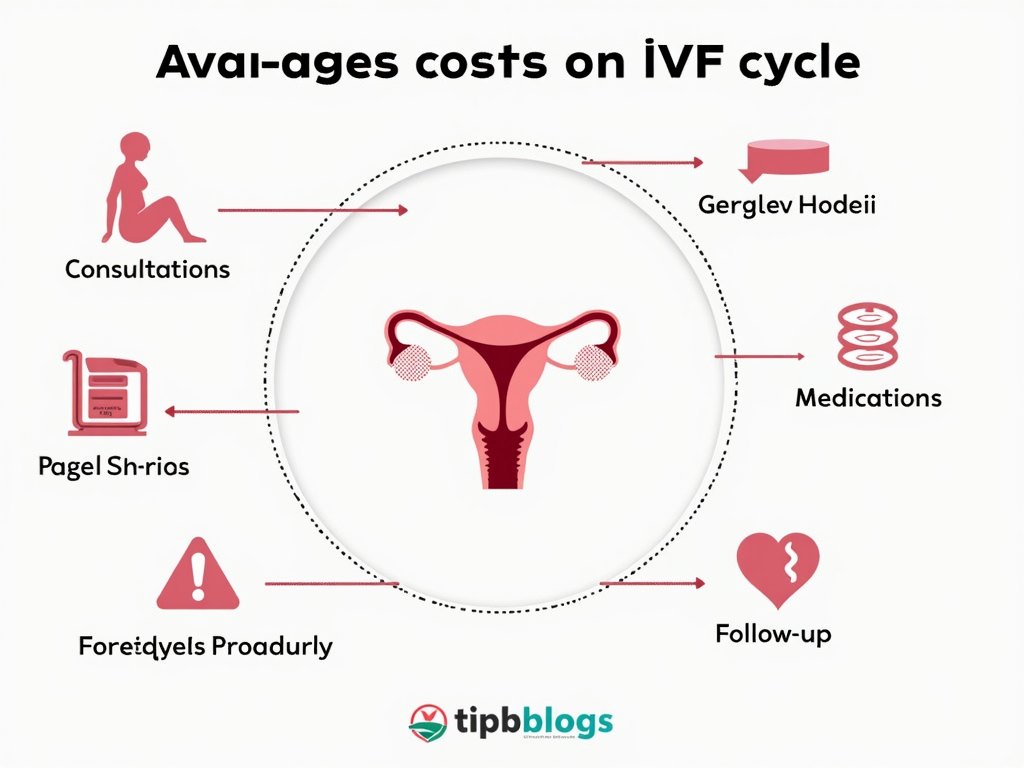Understanding the Cost of IVF and Budgeting Tips
March 29, 2025, 1:02 p.m.
In vitro fertilization, commonly known as IVF, is a beacon of hope for many couples struggling with infertility. However, the journey to parenthood through IVF can be financially daunting. Understanding the costs involved and planning accordingly is crucial for anyone considering this path. This article aims to demystify the expenses associated with IVF and provide actionable budgeting tips to help you navigate this complex process.

What is IVF?
IVF is a medical procedure where an egg is fertilized by sperm outside the body, in a laboratory. The resulting embryo is then transferred to the woman's uterus with the hope of achieving a successful pregnancy. This process involves several steps, including ovarian stimulation, egg retrieval, fertilization, and embryo transfer. Each of these steps comes with its own set of costs, which can vary widely depending on various factors.
Costs Associated with IVF
The cost of IVF can be broken down into several components:
- Initial Consultation and Testing: Before starting IVF, couples typically undergo a series of tests to determine the cause of infertility and the best course of treatment. This can include blood tests, ultrasounds, and semen analysis.
- Medications: Ovarian stimulation requires hormone injections to encourage the ovaries to produce multiple eggs. These medications can be expensive.
- Egg Retrieval and Fertilization: The surgical procedure to retrieve eggs and the laboratory process to fertilize them.
- Embryo Transfer: Placing the embryo into the uterus.
- Additional Procedures: Depending on the situation, additional procedures like intracytoplasmic sperm injection (ICSI) or preimplantation genetic testing (PGT) may be necessary, adding to the cost.
- Follow-up and Monitoring: Regular check-ups and ultrasounds during the treatment cycle.
On average, a single cycle of IVF in the United States can cost between $12,000 and $15,000, not including medications, which can add another $3,000 to $5,000.

Factors Affecting IVF Costs
Several factors can influence the total cost of IVF:
- Location: Costs can vary significantly depending on the country, state, or even the specific clinic.
- Clinic Reputation and Success Rates: Highly reputed clinics with higher success rates may charge more.
- Number of Cycles Needed: Not all IVF cycles result in a successful pregnancy, and multiple cycles may be necessary.
- Insurance Coverage: Some insurance plans cover part of the IVF costs, but coverage varies widely.
- Additional Treatments: Procedures like ICSI, PGT, or donor eggs/sperm can increase costs.
- Medications: The type and dosage of medications required can affect the overall expense.
Understanding these factors can help you anticipate potential costs and plan accordingly.
Budgeting Tips for IVF
Given the high costs associated with IVF, careful budgeting is essential. Here are some practical tips:
- Research and Compare Clinics: Look for clinics with good success rates and transparent pricing. Don't hesitate to ask for detailed cost breakdowns.
- Check Insurance Coverage: Understand what your insurance covers and what you'll need to pay out-of-pocket.
- Consider Financing Options: Many clinics offer financing plans or payment options. There are also loans specifically for fertility treatments.
- Save in Advance: If possible, start saving early. Consider setting up a dedicated savings account for IVF expenses.
- Look for Grants and Scholarships: Some organizations offer financial assistance for fertility treatments.
- Minimize Additional Costs: Be mindful of extra expenses like travel, accommodations, and time off work.
- Plan for Multiple Cycles: While it's hopeful to succeed in the first cycle, it's wise to budget for at least two or three cycles.

In Vitro Maturation vs. Traditional IVF
In vitro maturation (IVM) is an alternative to traditional IVF that can be less expensive. In IVM, immature eggs are retrieved and matured in the laboratory before fertilization, reducing the need for costly hormone injections. However, IVM is not suitable for all patients and may have lower success rates compared to traditional IVF. Discussing with your doctor whether IVM is a viable option for you can potentially save costs.
Personal Insights and Experiences
Navigating the financial aspects of IVF can be overwhelming. Many couples share stories of feeling unprepared for the emotional and financial toll. One couple I spoke with emphasized the importance of open communication with their clinic about costs. They found that asking detailed questions upfront helped them avoid unexpected expenses. Another individual highlighted the value of support groups, where they could share budgeting tips and emotional support with others going through similar experiences.

Conclusion
Understanding the costs associated with IVF is a critical step in the journey toward parenthood for many couples. By breaking down the expenses, considering factors that affect costs, and implementing practical budgeting strategies, you can better prepare for this significant investment. Remember, while the financial aspect is important, seeking emotional support and professional guidance is equally crucial. Consult with your fertility specialist to explore all options, including potential cost-saving measures like IVM, and don't hesitate to reach out to support networks for advice and encouragement.